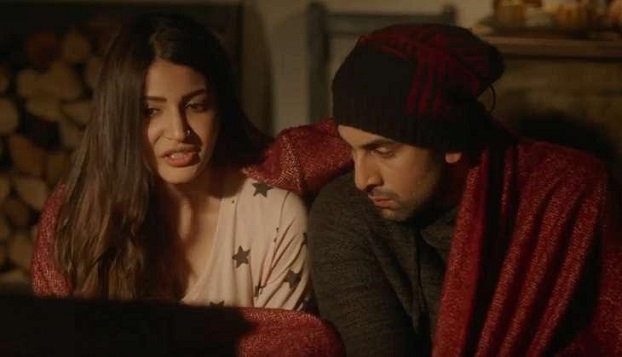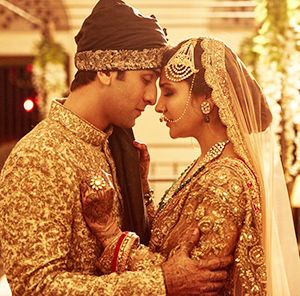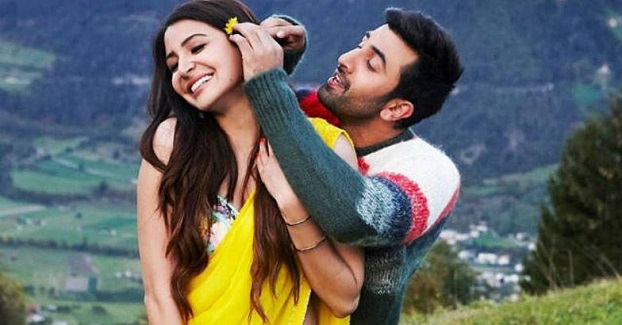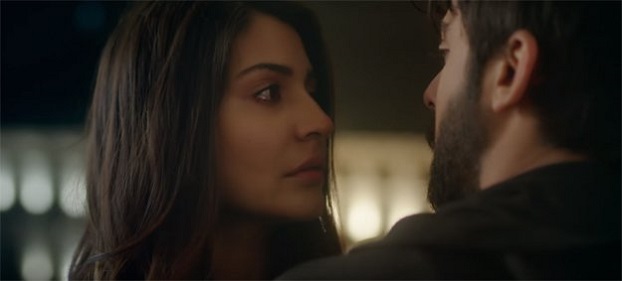Yesterday, I saw Ae Dil Hai Mushkil.
Disclaimers:
I am a feminist.
I know the words to every Shah Rukh Khan song in existence.
I have avoided watching the Karan Johar movies of my childhood for the past three years because of the pit in my stomach. It’s the crampy sort that tells you it’s time to move on, but you ignore it and keep huddling up in your safety blankets because life gets cold.
I really wanted to like the movie. Alizeh danced onto the screen, made fun of Ayan for his lack of kissing prowess, told him the moment passed. From Alizeh’s point of view, they became the instantly comfortable sort of friends who don’t need words, who give and take advice, have all the fun. Then, they talked, real on-screen talked about how she’s not attracted to him, how he’s attracted to her.

And if that conversation had ended differently, if the film’s hero had been emotionally vulnerable, thoughtful, or even an iota more mature, we’d have a very different movie.
What happens next by me:
“I like you a lot though,” says Ayan, “it’s going to be hard to be just friends.”
Alizeh: [Pause.] “Dude, that is hard. Like I said, I don’t feel that way about you.
Choose your own adventure 1:
“Maybe we should stop hanging out for a bit then,” says Ayan, “so I can sort out my feelings.”
Alizeh: “OK. If you need space I can give you that.”
Choose your own adventure 2:
“I think I might have been assuming things based on how we were hanging out,” says Ayan. “What does friendship mean to you?”
[Insert one of Alizeh’s 100,000 speeches on the importance of friendship.]
From either of these paths: Ayan realizes friendship is a wonderful relationship unto itself, gets over what he wants from Alizeh, lives happily ever after.
Of course, if you’ve seen the movie, you know there are hours worth of him failing to do this. I wouldn’t have written this piece if Ayan had exhibited any understanding at all. But, honesty got the short end of the stick. Ayan admits he’s attracted to Alizeh, and the conversation halts there. He buries that he’s fallen in love with her.

And who am I to judge? I’ve liked plenty of people and not told them. Sexual tension, the frisson of what-could-happen, adds spice to some friendships. Do you have to profess your love to someone you know will reject you?
Maybe not. But if he is going to lie in an open conversation, that should entail some internal readjustment. They are friends after all. I thought, Alizeh thought, they were the we-don’t-hide-from-each-other sort of friends. Having declared friendship, having heard her thoughts on it, one would think self-reflection would follow. But no.
Disclaimers (Part 2)
I love. Magic, violins, and air flowing silk soft through your hair when that someone kisses you.
I love my friends. With a fiery passion that makes me think I was a guard dog in my past life. They challenge me, comfort me, lift me over the deeper rifts in life. I could not live without them.
I hug everyone. I cuddle, I kiss, I lean, I snuggle, I link arms. The dog analogy holds.
I cannot stand when people say men and women can’t be friends.

Bollywood films sell the story of lifelong love and lifelong hurt. Ayan will not get over Alizeh: he loves her, she has never in any way indicated she wants a romantic relationship, and he will live under that bridge FOREVER. Tahir Khan (to those who saw the movie: yes, my heart skipped a beat; no, I’m not proud of it) will profess love to Saba, will stay jealous and act proprietary years after the end of their relationship.
Love, per this film, is not passion. After all, Ayan says he’s not trying to sleep with Alizeh. (Rest assured audience, he is not a bad man after sex, though he tried to kiss her after being told 100,000 times she’s not interested.) Love is the ultimate ownership. You are mine and mine only. If Ayan cannot have Alizeh in life, he will sing about her, talk about her; after her death, she will be remembered by his love. So, she’s his now after all!
And that ownership is the parting shot of the movie. Ayan never gets over what he wants from Alizeh, he just settles for being her friend. The deepest blow of the film though, is that Alizeh settles for friendship too. Alizeh loves Ali, he leaves her, she leaves him, the story is tortuous, but no matter how much time passes, she WILL NEVER love again. She can never belong to anyone else. She can just be friends.

And I cannot forgive the movie that. Create a woman who loves her friend, who keeps (incessantly, patiently) explaining why their friendship matters as much as any romantic relationship. But then insert, in each explanation of this potentially beautiful friendship, that it is her strength because Ali neutered her of her ability to love. Would she fall in love with Ayan if she hadn’t been broken? We’ll never know! Because there is no getting over heartbreak. Artwork is Saba for Tahir, Saba is Alizeh for Ayan, Ayan’s friendship is the only sort of love left for Alizeh.
We’re served friendship like cold left-overs, a substitute for real love. Someday, I want to see a film about our ability to grow, to change, to learn to understand each other. I wanted to see a friendship that guided the protagonists through those changes.
Though it might not have been its aim, the movie does make one thing obvious. Lifelong love, lifelong heartbreak and ownership stifles possibility. Alizeh’s death becomes the only way out. She can’t be allowed to love anyone else, and Ayan definitely can’t watch her love anyone else. Insert cancer here.
***
Shivani Srivastav is currently a student at the NYU School of Medicine. She received her B.A. in creative writing at the University of Pennsylvania, where she was also an English tutor, and taught fiction workshops to high school students. She was most recently published in in-Training for Medical Students, and she is working on a novel while writing poetry in the margins of her textbooks.












